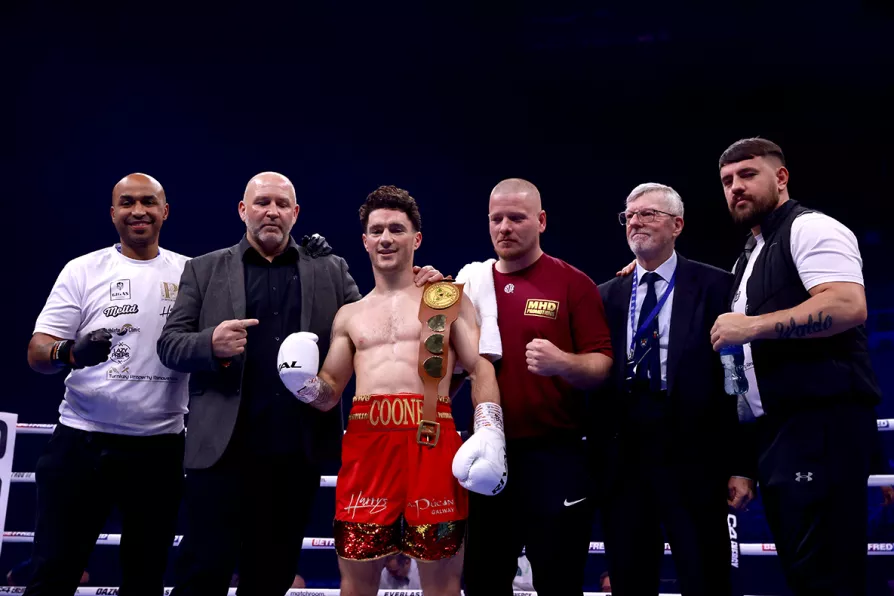
 John Cooney celebrating with his team after winning his Celtic Super Featherweight fight against Liam Gaynor, November 25, 2023
John Cooney celebrating with his team after winning his Celtic Super Featherweight fight against Liam Gaynor, November 25, 2023
JOHN COONEY was 28 years old. In other words, he was a young man still within the parameters of his physical prime. Now he is dead.
Climbing into the ring in Belfast on February 2, the super-featherweight Celtic champion had every reason to believe that the future was bright. After all, the popular Northern Irishman’s boxing career was once again in the ascendancy after being out of action for a year with a hand injury, he was engaged to be married to his fiancee Emmaleen, and this defence of his Celtic title against Welshman Nathan Howells, if he came through as he was favoured to, would pave the way for more lucrative opportunities in the sport that he loved.
The cruel vicissitudes of life had a different fate mapped out for him, however, to the extent that a week after losing to Howells by stoppage in the ninth round, Cooney was pronounced dead from a catastrophic head injury at Belfast’s Royal Victoria Hospital. It marks yet another ring fatality and along with it, a shuddering reminder of the inherent dangers of a sport which amounts to organised violence and unarmed combat.

JOHN WIGHT previews the much-anticipated bout between Benn and Eubank Jnr where — unlike the fights between their fathers — spectacle has reigned over substance













